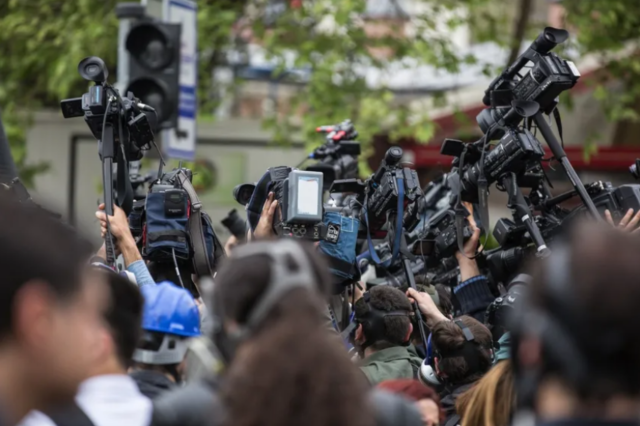
The post-election onslaught of the Nicolás Maduro regime against Venezuelan journalism was evidenced by the greater number of attacks against journalists and press workers in the different regions of the country after the protests against the presidential results announced by the National Electoral Council (CNE).
Correspondent lapatilla.com
Different NGOs in the country recorded 16 arrests of communication professionals, at least 12 of them starting on July 28th. Since then, self-censorship and even exile, due to fear and threats, are realities experienced by journalists from private media, who dare make a stand outside the editorial line dictated by the regime.
Venezuelan journalist Luis Gonzalo Pérez recently confirmed through his Instagram account that he was forced to leave the country, after the siege and hunt by security agencies that were looking for him to arrest him. Pérez recalled that he was part of the communications team of opposition leader María Corina Machado. He was the one who covered her tour of the different states.
Another of the press workers who was forced to leave the national territory was the photojournalist Jesús Medina Ezaine, who through his account in the social network X reported that a judge revoked his acquittal and had ordered a new trial.
It is worth remembering that Medina was deprived of liberty in 2018, for one year and four months, for alleged money laundering and criminal association. However, after being released from prison and going through a judicial process plagued by irregularities that lasted five years, he was acquitted in June of this year.
In exile for reporting
More than 18 press workers are in exile after the presidential elections of July 28th, according to a figure provided by Gonzalo Pérez, who also lamented the repression and arrests of Venezuelan colleagues.
“More than 18 press professionals are in post-election exile, including journalists, photographers, photojournalists and international correspondents. Regrettably, we are going through a situation where our rights are not respected, where there are journalists in Venezuela currently in prison, charged with terrorism, where our work and our only ‘weapons’ have been a camera and a microphone,” said Pérez.
Post-election exile is added to the data recently published by the Institute of Press and Society (Ipys Venezuela) in its newsletter “Periodistas en el Exilio” (Journalists in Exile). According to Edgar López, a journalist specializing in human rights and a member of the Ipys Venezuela team that prepared the aforementioned report, 85% of the journalists who fled the country did so due to restrictions on the practice of journalism in Venezuela.
“The majority emigrated during the years of hunger, of scarcity, in the years of greatest social conflict, between 2016 and 2020, but this exodus has not stopped. Unlike the Venezuelan diaspora in general, the journalistic diaspora has had the United States, Spain and Colombia as its main destination countries, in that order,” López pointed out.
In addition, López assured that exile has meant a loss for Venezuelan journalism, because 60% of the journalists who fled the country do not practice the profession any more.

Freedom for those arrested
The National Union of Press Workers (Sntp) has recorded the systematic violations against the practice of journalism in the country in recent years and also documented chronologically the post-election arrests from July 29th to the present date.
According to data from the Sntp, on Monday, July 29th, Yousner Alvarado, a photojournalist from Barinas, was arrested; on July 30, journalists Paúl León, in Trujillo, and Joaquín de Ponte in Guárico state were captured (the latter was released the same day); on August 2, photojournalist Deysi Peña (Miranda) and journalist and political leader Roland Carreño were arrested; on August 3, photojournalist Fernando Chuecos (Trujillo) and journalist and political leader José Camero (Guárico) were arrested.
On August 16th, Gilberto Reina, editor of a news outlet in Bolívar state, was arrested; on August 20th, Ana Carolina Guaita, a journalist from lapatilla.com in La Guaira State, was detained by regime officials; and on August 25th, journalist Carmela Longo was arrested and later released on bail with restrictions.
In the cases of press workers who have spent more than 45 days since the presentation hearing and the period for the Public Prosecutor’s Office to present the “acto conclusivo” (formal accusation) has passed, relatives and human rights defenders in Venezuela demand that the justice agencies respect due process and grant freedom that is due.

